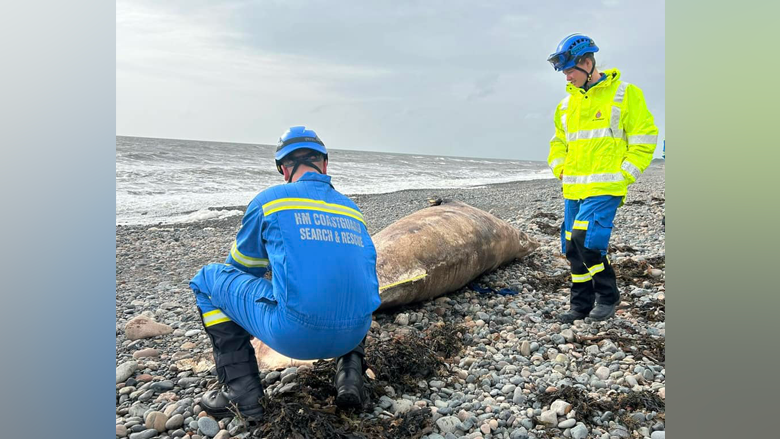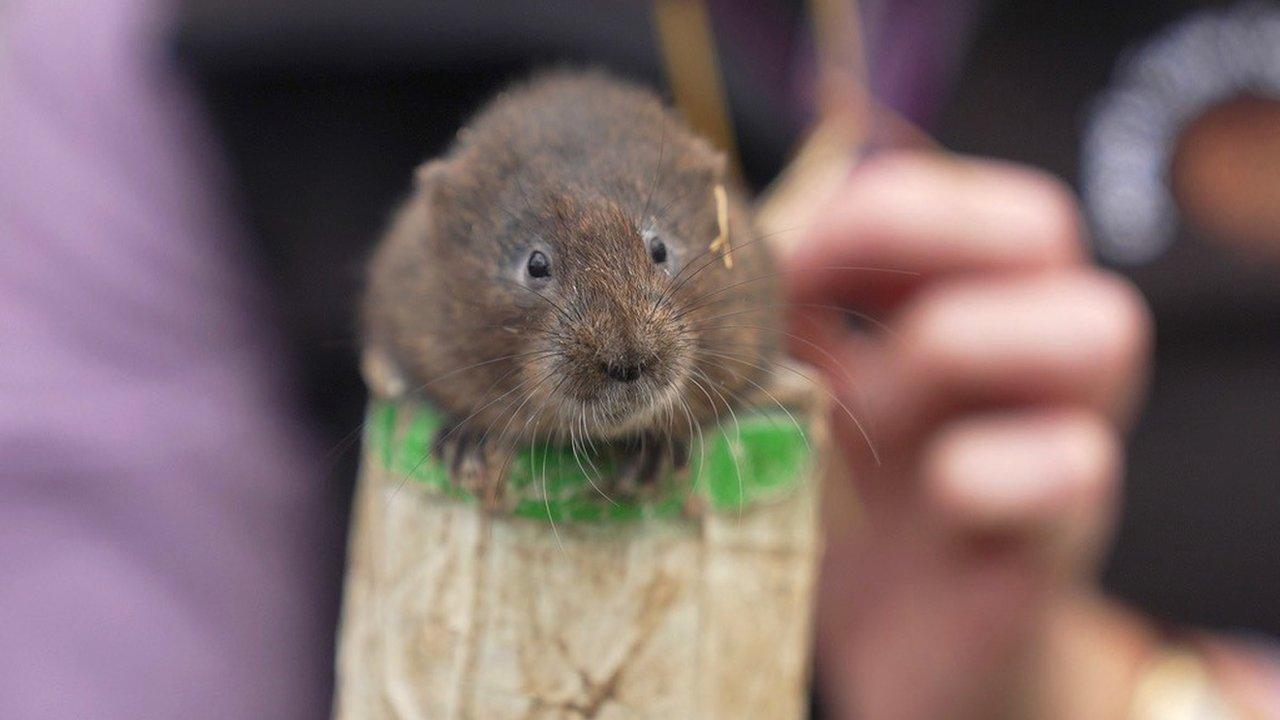Dead whale washes ashore on beach

The whale washed up at Braystones, near Whitehaven in Cumbria
- Published
A dead whale has washed up on a beach in Cumbria.
Measuring approximately 3.5m (11.5ft) in length, the mammal was discovered at Braystones, near Whitehaven, on Monday evening.
It is believed to be a juvenile minke or fin whale, but Whitehaven Coastguard said it was waiting for expert confirmation of the animal's breed and age.
Rescuers said they would notify local authorities to arrange disposal "if the tide or nature doesn't run its course first".
Measurements and location details have been sent to the Natural History Museum as part of the UK Cetacean Strandings Investigation Programme, external.
'Quite decomposed'
Marine biologist Sarah Neill, who works at Kendal College, said sightings like this were common.
"Here in Cumbria we do often get live and dead sightings of marine mammals reported, including minke, fin and sei whales, northern bottlenose whale, pilot whale, common dolphin, bottlenose dolphin and Rissos dolphins."
Ms Neill said healthy cetaceans could become stranded because of navigational errors or underwater noise, while unhealthy animals might wash up due to injury, malnutrition, disease, old age or maternal separation.
There had also been instances of strong social bonds causing "mass stranding events", she said.
The whale looked "quite decomposed" from the photo, Ms Neill said, adding: "But maybe a post-mortem can still yield some findings."
Follow BBC Cumbria on X, external, Nextdoor, external, Facebook, external and Instagram, external. Send your story ideas to northeastandcumbria@bbc.co.uk
More stories from BBC North East and Cumbria
- Published17 August 2023

- Published26 July 2014